6 Essential Vitamins for Skin Health
There is a lot of skincare advice out there today, and just as many products. Achieving vibrant, healthy-looking skin requires a consistent and conscious effort, and with so much to know, it can seem daunting to work on the healthy glow you’re going for. But it’s not so bad once you break it down to a few simple steps. Develop a personalized daily skincare routine, avoid too much ultraviolet (UV) exposure, stay hydrated, eat smart, and maintain a healthy balance of minerals and vitamins for skin health.
Like the other organs in your body, the epidermis (or surface layer of the skin) is affected by all of the nutrients you take in, including vitamins. Many vitamins are skincare superstars, promoting collagen production, providing antioxidant support, reducing minor skin irritation, and beyond. For example, vitamin E can regulate your skin’s healthy oil production for healthy, clear skin. Let’s review six of the top vitamins for skin health, plus where to find them.*

Vitamin D—the Sunshine Vitamin
Your body’s most common source of vitamin D is sunlight, created as part of the process of UV rays being absorbed through the skin. While too much sun exposure can be bad news, vitamin D is a necessary part of your skin’s renewal process, which helps the epidermis lock in moisture to keep your skin soft and hydrated. Additionally, a protein found in vitamin D helps support the body’s natural skin repair processes.*
Fatty fish like salmon, tuna, and cod are good sources of vitamin D. Other foods are fortified with vitamin D, such as certain types of milk, orange juice, and yogurts. Sensible sunbathing can also increase your vitamin D intake. The single biggest risk factor for aging skin is UV exposure, though, so refer to our blog featuring four sensible summer skincare tips before you soak up the sunshine.
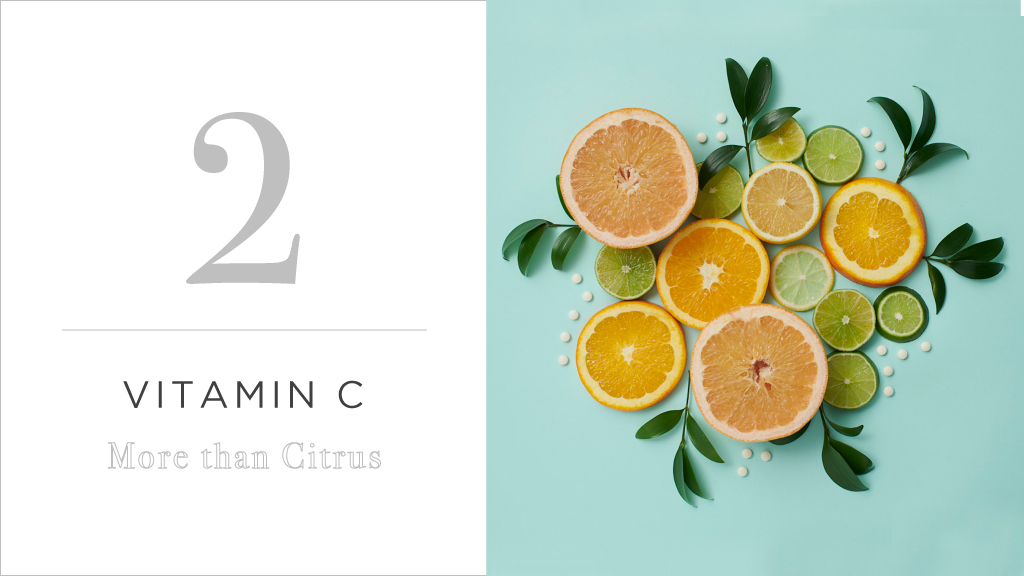
Vitamin C—More than Citrus
Ascorbic acid, or vitamin C, is a water-soluble vitamin and powerful antioxidant used by the body to make collagen tissue. Adequate vitamin C consumption can protect health, support balanced immune function, and maintain healthy, younger-looking skin. Vitamin C can’t be stored in the body, so it’s important to have a sufficient amount of vitamin C in your diet.
This citrus-associated nutrient isn’t just found in oranges—good sources of vitamin C include winter squash, spinach, mangos, broccoli, green and red peppers, tomatoes, and the usual suspects such as limes, lemons, and grapefruit.
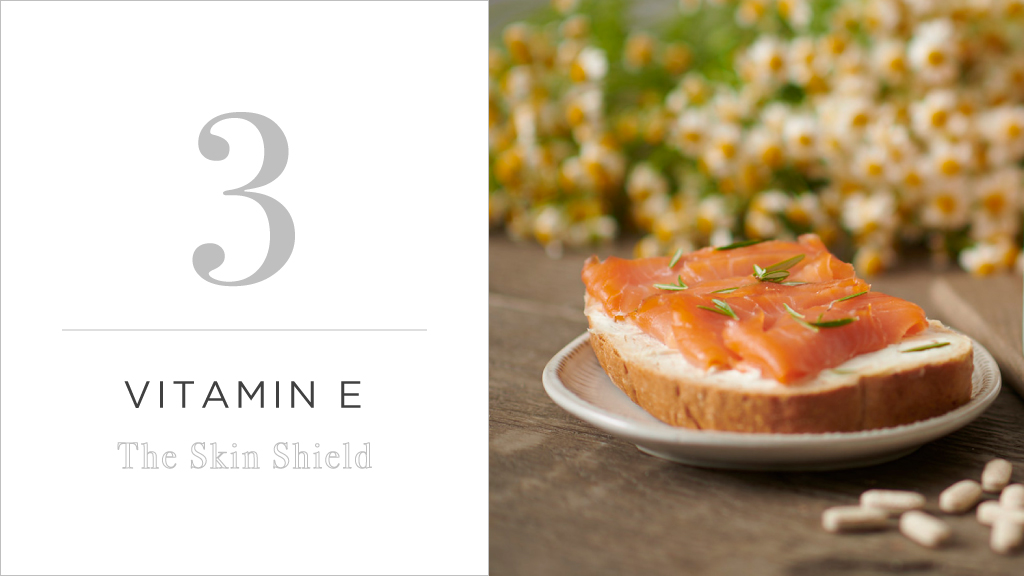
Vitamin E—the Skin Shield
An essential nutrient with anti-oxidative properties, vitamin E provides support for the immune system as an antioxidant and may even be beneficial in protecting your skin from the effects of the sun through photoprotection (noticing the sunny theme here?). Sun exposure and the aging process are both responsible for reducing the levels of vitamin E in the skin over time. But studies have shown long-term oral administration of vitamin E can help preserve skin health by providing oxidative defense.*
Vitamin E is found in vegetable oils, such as sunflower and safflower oil; seafoods, such as salmon and abalone; broccoli, spinach, and other green vegetables; and some commercially processed foods.
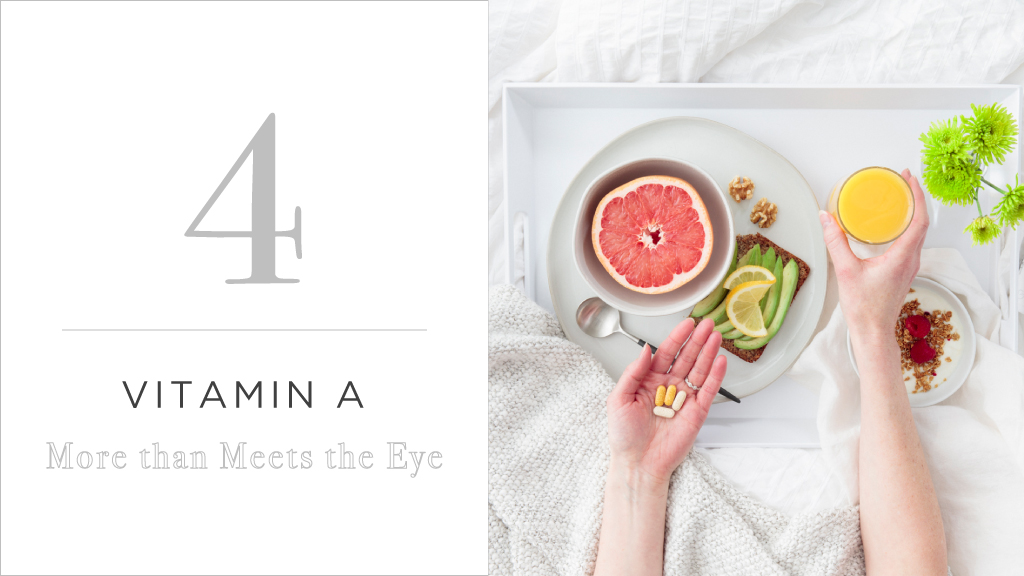
Vitamin A—More than Meets the Eye
Retinoids, bioactive compounds of vitamin A including active acids retinol and retinal, possess a host of skin benefits. Not only is this vitamin a fat-soluble antioxidant, its active compounds promote healthy skin cell production in the fibroblasts, or deep skin tissue. In addition to stopping free radicals from breaking down collagen, the carotenoids found in vitamin A may reduce skin’s sensitivity to sunburn in particularly sun-sensitive people. This eye-associated nutrient can be found in both plant and animal sources and is a common topical ingredient. Prescription topicals may be recommended by a dermatologist to reduce wrinkles and soften skin texture.*
If a food is orange, it might contain vitamin A: carrots, sweet potatoes, salmon, cantaloupe. Eggs and dairy products are also rich in this ubiquitous nutrient. Leafy greens like collards, kale, turnip greens, and Swiss chard are also great food sources of vitamin A.
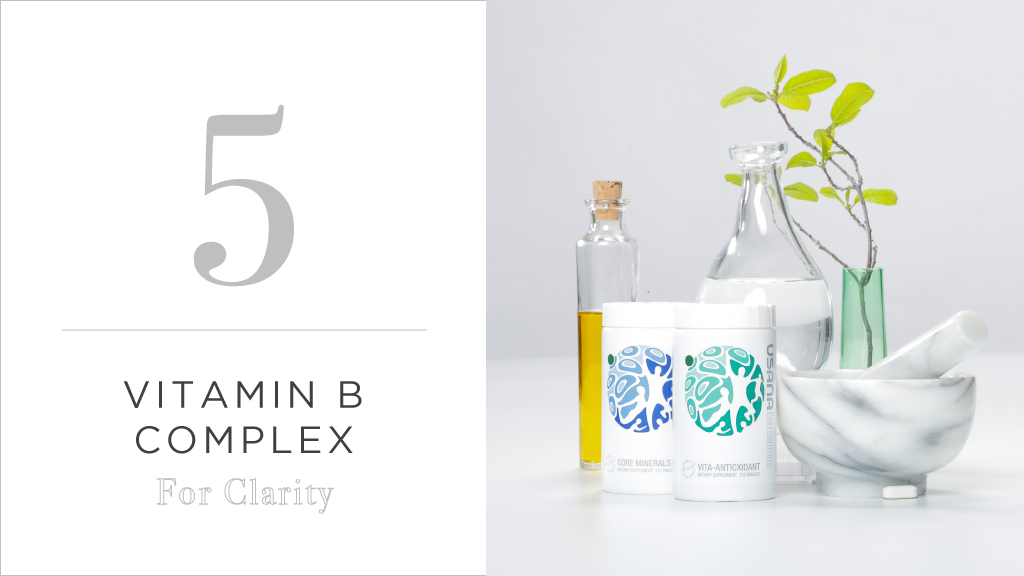
Vitamin B Complex—for Clarity
Vitamin B6, or pyridoxine, can keep skin clear by helping to support healthy hormone balance to maintain healthy, clear skin. Vitamin B12, also known as cobalamin, is a real skin health standout. It helps to regulate the production of pigment in the skin, reducing the appearance of dark spots and pigmentation. Like other nutrients, B12 assists your body with protein metabolism, promoting the growth of healthy skin cells and supporting the body’s natural skin repair process.*
Sunflower seeds and bananas are good sources of vitamin B6, while eggs, cheese, and shellfish are sources of B12. Supplementation of B12 will be easier for vegetarians and vegans, as most sources are animal-derived. You can find both of these B complex vitamins in USANA CellSentials®, which includes all six of the vitamins listed here, plus other essential nutrients. For a detailed breakdown of the CellSentials, visit Ask the Scientists.
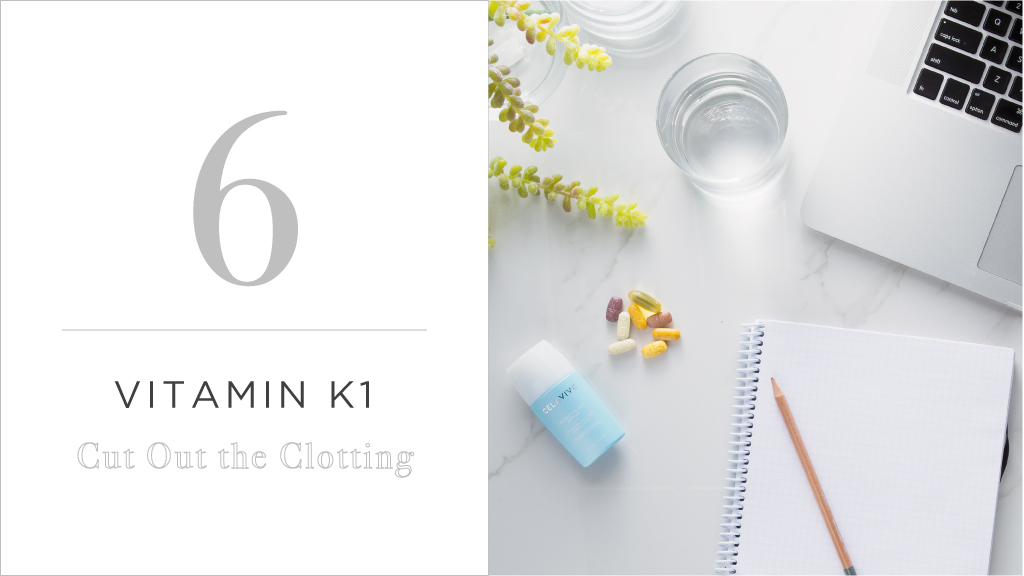
Vitamin K1—Cut Out the Clotting
Vitamin K1 might not be as well known as other vitamins earlier in the alphabet and further up this list, but the skin benefits speak loud and clear. The main health factor of vitamin K is aiding in healthy blood flow and clotting, which in skin terms can affect dark spots, spider veins, and under-eye circles. Early studies point to vitamin K’s ability to activate MGP, an acid protein in the epidermis, to help preserve elasticity in the skin. This may help with stretch marks and wrinkles.*
Vitamin K1 is found in leafy green vegetables such as kale, spinach, and collards, and other greens like broccoli and cabbage. Many skincare topicals include up to 5 percent vitamin K because it optimizes healthy elasticity in blood vessels. If youthful-looking skin is a top priority, develop a daily skin cleansing and nourishing routine to keep up the glow. Celavive®, USANA’s high-performance skincare line, uses targeted nutrition combinations to awaken your skin’s natural renewing abilities.*
Beyond Skin-Deep
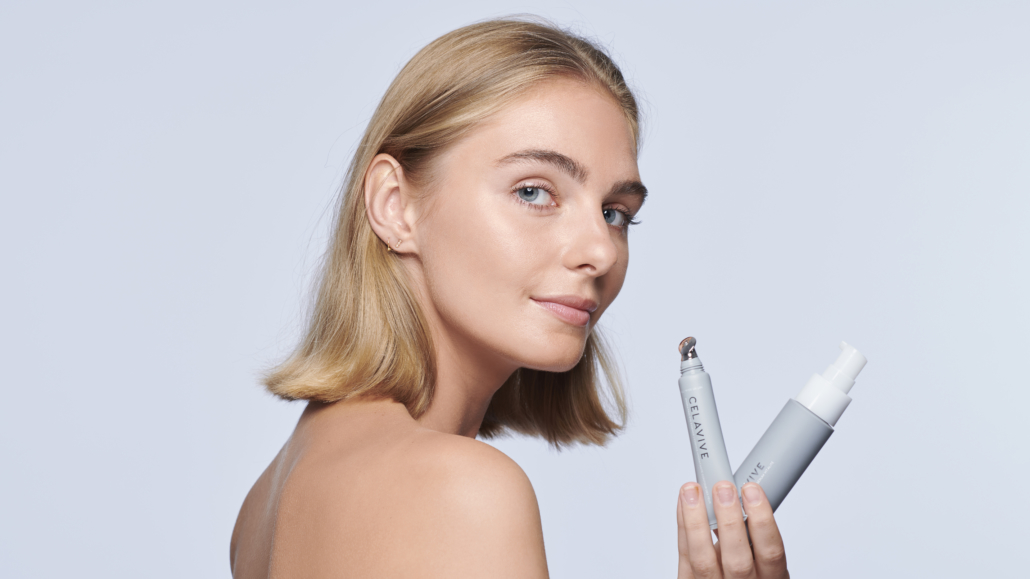
There are many factors to skin health. Watching what you eat, staying hydrated, developing a daily skincare routine, maintaining a consistent sleep schedule, and making sure you are getting enough essential nutrients are all great ways to maintain a radiant complexion and promote healthy skin. If you aren’t sure how to start upping your vitamin and mineral intake, consider our comprehensive HealthPak™. It features four core USANA products, including CellSentials, and offers a daily dose of all six of the vitamins listed above, plus many more beneficial nutrients. With Auto Order and individual AM/PM packs, it takes the guesswork out of nutritional.*
Make a small commitment today to establish one skin-centered healthy habit over the next two weeks. Then make another small change, then another, and before you know it, you’ll be confidently living in your best skin.
| *THESE STATEMENTS HAVE NOT BEEN EVALUATED BY THE FOOD AND DRUG ADMINISTRATION. THIS PRODUCT IS NOT INTENDED TO DIAGNOSE, TREAT, CURE, OR PREVENT ANY DISEASE. |
|---|
This post is also available in: Chinese (Traditional)

This is the most beautifully crafted article. Its clear and very informative and delightful at the same time.
Thank you Samantha
I must say however that light text highlights are very difficult to read.